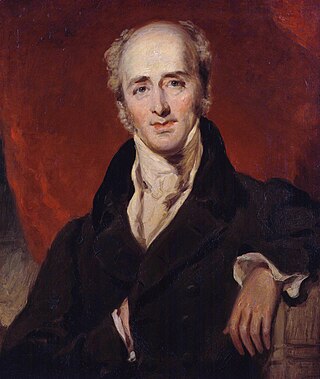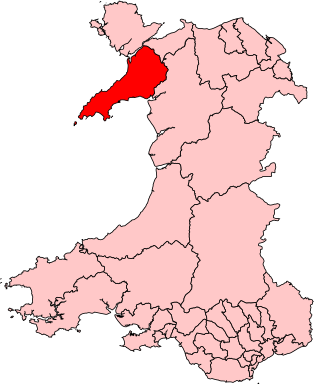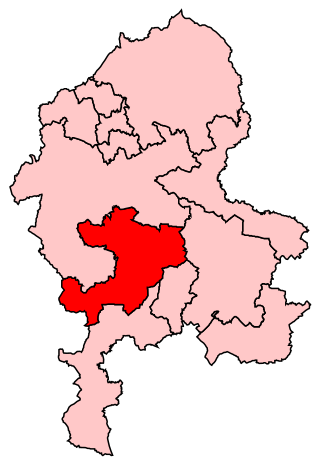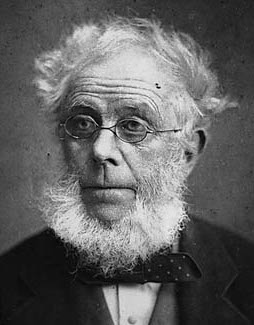Related Research Articles

The 1832 United Kingdom general election, the first after the Reform Act, saw the Whigs win a large majority, with the Tories winning less than 30% of the vote.

Caernarfon was a parliamentary constituency centred on the town of Caernarfon in Wales. It elected one Member of Parliament (MP) by the first past the post system.

Stafford is a constituency represented in the House of Commons of the UK Parliament since 2019 by Theodora Clarke, a Conservative.

Bedford is a constituency represented in the House of Commons of the UK Parliament since 2017 by Mohammad Yasin of the Labour Party.

Abingdon was a parliamentary constituency in England, represented in the House of Commons of the Parliament of England until 1707, then of the Parliament of Great Britain from 1707 to 1800 and of the Parliament of the United Kingdom from 1801 to 1885. It elected one Member of Parliament (MP) from 1558 until 1983.
Bewdley was the name of a constituency of the House of Commons of the Parliament of the United Kingdom from 1605 until 1950. Until 1885 it was a parliamentary borough in Worcestershire, represented by one Member of Parliament; the name was then transferred to a county constituency from 1885 until 1950. Its MPs included the former Prime Minister Stanley Baldwin, who represented the seat from 1908 to 1937, and afterwards took the name of the constituency as part of his title when he was raised to the peerage.
Helston, sometimes known as Helleston, was a parliamentary borough centred on the small town of Helston in Cornwall.
Wootton Bassett was a parliamentary borough in Wiltshire, which elected two Members of Parliament (MPs) to the House of Commons from 1447 until 1832, when the rotten borough was abolished by the Great Reform Act.
Stockbridge was a parliamentary borough in Hampshire, which elected two Members of Parliament (MPs) to the House of Commons from 1563 until 1832, when the borough was abolished by the Great Reform Act. It was one of the more egregiously rotten boroughs, and the first to have its status threatened for its corruption by a parliamentary bill to disfranchise it, though the proposal was defeated.
Hindon was a parliamentary borough consisting of the village of Hindon in Wiltshire, which elected two Members of Parliament (MPs) to the House of Commons from 1448 until 1832, when the borough was abolished by the Great Reform Act. It was one of the most notoriously corrupt of the rotten boroughs, and bills to disfranchise Hindon were debated in Parliament on two occasions before its eventual abolition.
Shaftesbury was a parliamentary constituency in Dorset. It returned two Members of Parliament to the House of Commons of England, Great Britain and the House of Commons of the Parliament of the United Kingdom from 1295 until 1832 and one member until the constituency was abolished in 1885.
Sandwich was a parliamentary constituency in Kent, which elected two Members of Parliament (MPs) to the House of Commons from 1366 until 1885, when it was disfranchised for corruption.
Beaumaris was a parliamentary borough in Anglesey, which returned one Member of Parliament (MP) to the House of Commons of the Parliament of England from 1553, then to the Parliament of Great Britain from 1707 to 1800 and to the Parliament of the United Kingdom from 1801 to 1885, when the constituency was abolished. After 1832, the constituency was usually known as the Beaumaris District of Boroughs or simply the Beaumaris Boroughs.

William Bulkeley Hughes J.P. was a Welsh politician who sat in the House of Commons from 1837 to 1859 and 1865 to 1882. He was elected for Member of Parliament for Carnarvon Boroughs constituency.
Philip Pusey was a reforming agriculturalist, a Tory Member of Parliament (MP) and a friend and follower of Sir Robert Peel.
The 1890 Caernarvon Boroughs by-election was a parliamentary by-election held on 10 April 1890 for the British House of Commons constituency of Caernarvon Boroughs.

Sir John Owen, 1st Baronet, born John Lord, was a British Tory politician from Wales. He sat as a Member of Parliament (MP) for over fifty years. His wealth came from coal mining but he lost most of his fortune as a result of costly electoral campaigns in Pembrokeshire, most notably those of 1831.
Sir Hugh John Ellis-Nanney, 1st Baronet, was a Welsh landowner, magistrate and political candidate.
References
- 1 2 "Sir H J Ellis-Nanney, Bart". Cardiff Times. 26 June 1897.
- ↑ "Borough of Carnarvon". Chester Courant. 8 January 1833.
- ↑ "The Chronicle". North Wales Chronicle. 12 March 1833.
- ↑ "Carnarvon Election Committee". Dublin Evening Mail. 22 May 1833.
- ↑ "Carnarvon". Morning Herald. 23 May 1833.
- ↑ M. Stenton, ed. (1976). Who's Who of British Members of Parliament: Volume I 1832-1885. Harvester Press. p. 282.